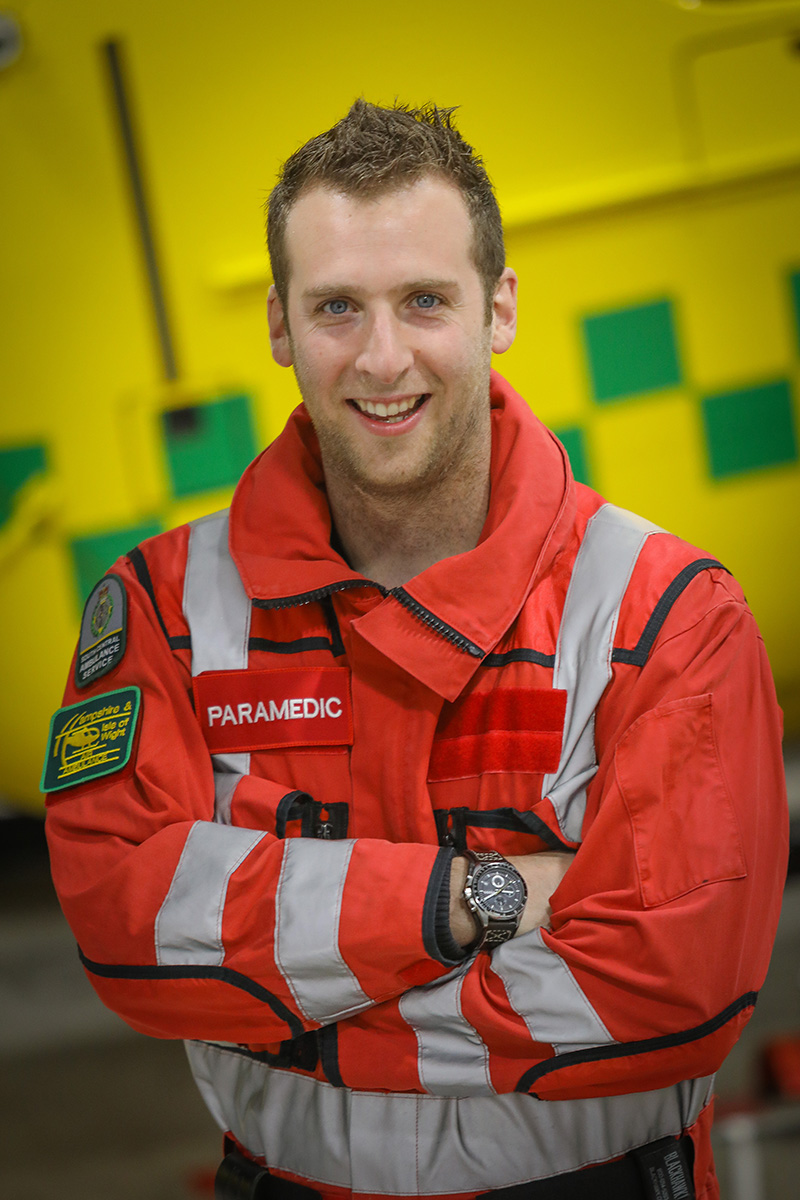On Sunday 12 May 2019, Neil and his good friend, Robin, ventured out at 7am to take part in the annual Isle of Wight charity walk; Walk the Wight. Nearing the end of their walk, with no prior warning, Neil collapsed to the ground. Given their location, and severity of the incident, Neil required the specialist skills of the Air Ambulance Critical Care Team. Below he tells his story.
“Ever since I was a boy growing up in north Dorset, I’ve enjoyed the outdoor life and walking has been a particular pleasure, so when my good friend, Robin, suggested we ‘Walk the Wight’ I had absolutely no hesitation in agreeing.
“I considered myself to be a fairly fit 65-year-old with no obvious health issues. I walk my much loved rescue greyhound about four miles every day and add another three miles or more on the golf course twice a week. So although the walk was somewhat longer than I had done for a while, I didn’t feel the need for any extra-ordinary preparation.
“The day of the walk arrived, it was bright and sunny, not too hot with a light breeze – ideal conditions. As we got to Brook Down, roughly 18 miles from the start line, we could see our pathway snaking up over Tennyson Down towards The Needles and I remarked to Robin, ‘Well there it is, the home stretch, but let’s not get ahead of ourselves just yet’. That was the last I remember of the walk. Shortly afterwards, without any prior indication or warning I collapsed. I had suffered a heart attack leading to cardiac arrest.
“A small group of players from the Isle of Wight Rugby Club, who were also doing the walk, saw me collapse and rushed to my aid. At the same time a nearby midwife rushed over. Between them, the rugby players, co-ordinated by the midwife, commenced CPR and managed to re-start my heart. They had all just completed a course in CPR but were certainly not expecting to put their newly acquired life-saving skills to the test quite so soon.
“One of the team from Medi 4 Ambulance Service quickly arrived, having negotiated his way along a rutted and pot-holed track. The CPR administered by the team of rugby players had kept me alive, but my heart was weak and unable to function by itself.
“Medi 4 Ambulance Service immediately called for Hampshire and Isle of Wight Air Ambulance, but my heart failed again, prompting them to use the defibrillator. That, and on-going CPR, kept me alive until the Air Ambulance arrived. The uneven terrain and slope of the ground meant that the Air Ambulance had to land on the top of the slope and the crew had to make their way down to me.
“With the help of the rugby players, the crew from the Air Ambulance Critical Care Team put me on a stretcher and carried me up the slope to the Air Ambulance. Some 10 to 15 minutes later I was being rushed into the Cardiac Intensive Care Unit at University Hospital Southampton.
“I’m told it was roughly two hours in total from the time I collapsed until I was in hospital, but to this day I have absolutely no recollection of the events.”
Neil was placed into an induced coma for roughly 24 hours and, in the days that followed, underwent a quadruple coronary artery bypass. Four days after surgery, he was well enough to be discharged home.
“After about 12 weeks further convalescence, I’m delighted to say I was ‘as good as new’ living and leading an active life just as I did before.
“What is absolutely clear to me is, given that I had collapsed on a remote hillside, without the immediate attention I received from fellow walkers, and the quick response of the Air Ambulance and its crew, I would almost certainly not be here today.”
A Paramedic’s Perspective: Specialist Paramedic Jason Butler
Due to the excellent CPR and care delivered to Neil prior to our arrival, Neil’s heart was beating.
 However, one of the effects a cardiac arrest can have is to starve the body of oxygen for a period of time. This can cause temporary and sometimes longer lasting damage.
However, one of the effects a cardiac arrest can have is to starve the body of oxygen for a period of time. This can cause temporary and sometimes longer lasting damage.
In order to minimise the impact of this Neil received a pre-hospital emergency anaesthetic. This allowed us to optimise his oxygenation as well as safely transport Neil to the nearest cardiac centre, which in his case was University Hospital Southampton.
We alerted the hospital to our incoming presence and Neil’s condition. On arrival he was met by specialist nurses and doctors who continued Neil’s excellent care.
I’m so pleased to hear that Neil is doing so well. The initial CPR Neil received was vital to the amazing outcome he has had and is key to allow us as a team to perform the interventions we do.


 Donate
Donate






